Build muscle all over without weights in just 32 minutes—here's how
These eight moves will work your whole body, boost your metabolism, and develop serious core strength

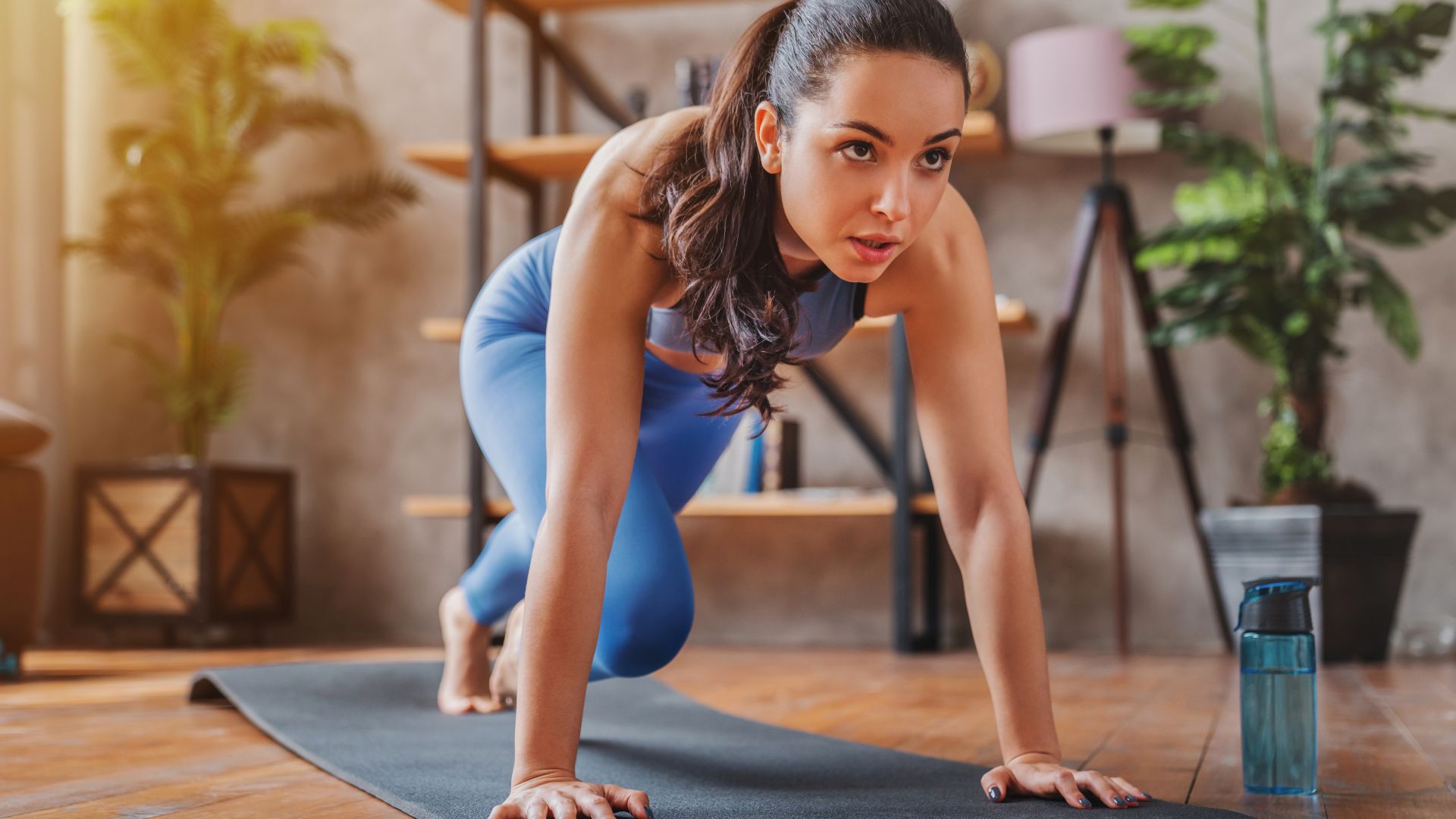
If you want to build strength and boost your fitness levels, the gym is the only place to go, right? Well, not quite.
Cleverly-designed home workouts can help you forge a stronger, more functional body with just a set of dumbbells or kettlebells. Or, in some cases, they don't require any equipment at all.
"Making workouts accessible is often the key to making them achievable," says personal trainer Emma Bord. And she's done just that, creating an exclusive eight-move circuit workout for Fit&Well readers that exclusively uses bodyweight exercises.
"Many of the exercises use multiple muscles groups of the body making the session time efficient and effective. The workout combines strength and cardio training, and it can also be made suitable for all fitness levels, with modifications and progressions on offer.
"It requires nothing more than a little bit of space, a dose of energy and your own body weight," she says.
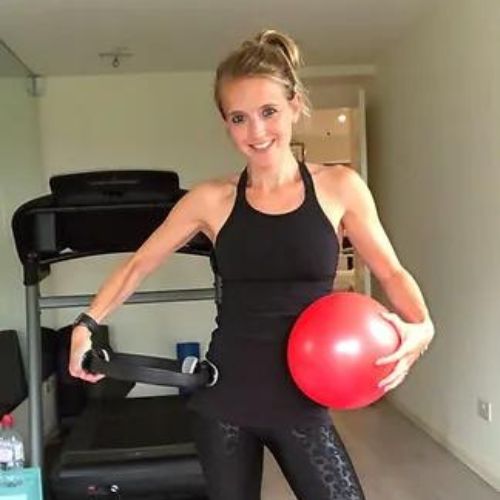
Emma Bord has worked as a personal trainer for more than 10 years, working with clients of all ages and fitness goals. She is also qualified in pre and post-natal training. Emma's approach includes HIIT, Pilates, boxing, weight training, conditioning, core-strengthening and more, with a focus on bringing the mind and body together to appreciate the benefits exercising can have on mental health.
Emma Bord's full-body bodyweight workout
You won't need any equipment for Bord's workout, just 32 minutes, a little bit of floor space and eight exercises: inchworm to shoulder taps, squats, push-ups, burpees, reverse lunges, mountain climbers, bicycle crunches and commandos.
If you've not done these moves before, Bord has put together a guide for each one, and helpful tips to get the most from your training. You'll do each exercise for 40 seconds, take a 20-second rest, then start on the next.
Start your week with achievable workout ideas, health tips and wellbeing advice in your inbox.
Repeat the eight-move sequence until you have done each exercise four times, then that's the workout complete.
1. Inchworm to shoulder tap
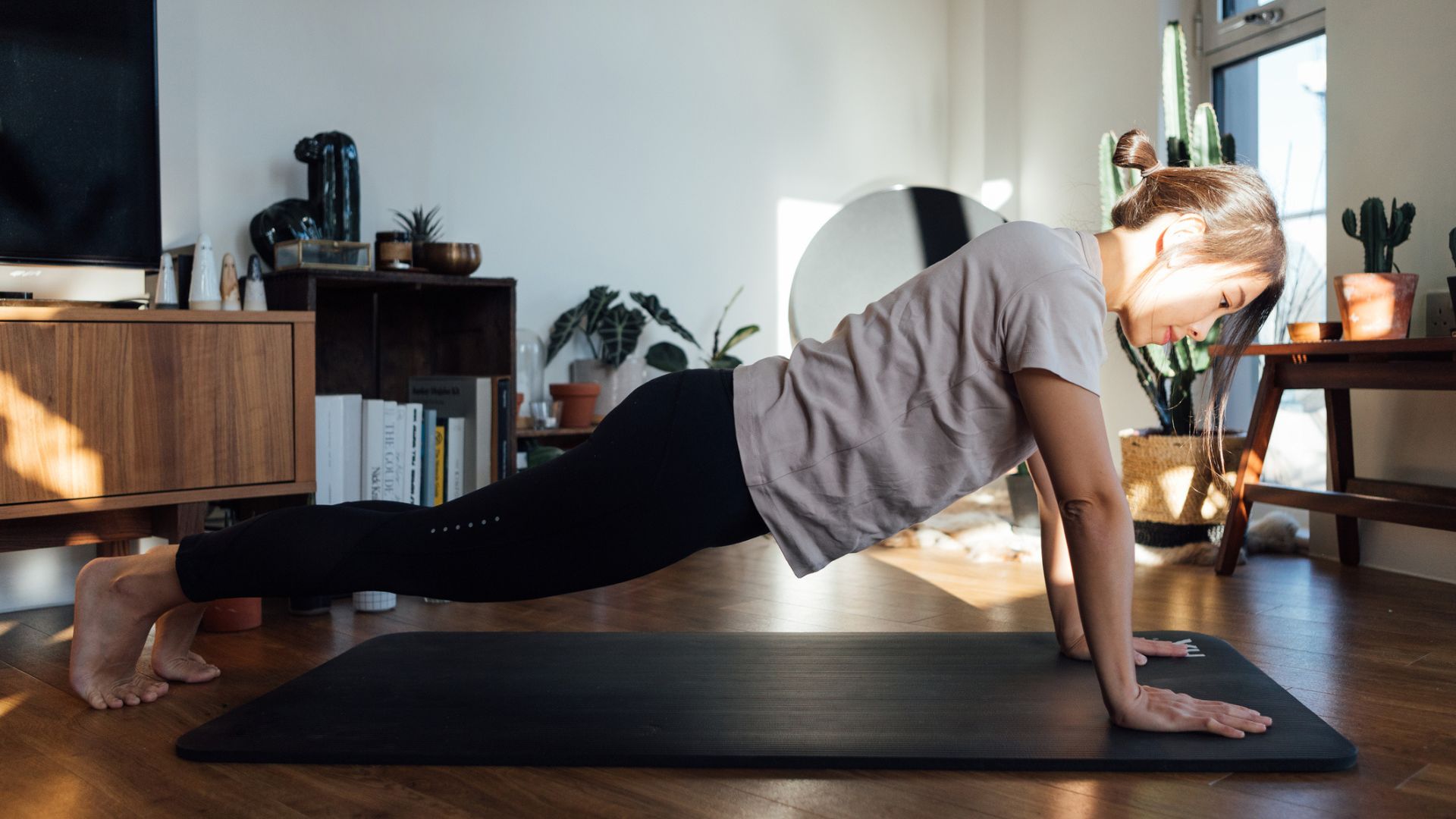
"This is a dynamic full-body movement that activates and strengthens the shoulders, arms and core.
"It's a great exercise as it also increases your balance and stability. Go fast to increase the intensity of the exercise, or lower your knees for the shoulder taps if you are new to this and just building up your strength.”
- Start standing upright with your hands by your sides.
- Hinge at the hips and fold forward, planting your hands on the ground in front of you.
- Walk your hands out in front of you until you are in a high plank position.
- Placing your weight on one hand, lift the other and tap the opposite shoulder. Return to the push-up position and repeat on the other side.
- Walk your hands back towards you to return to your upright starting position. That's one repetition.
2. Squat
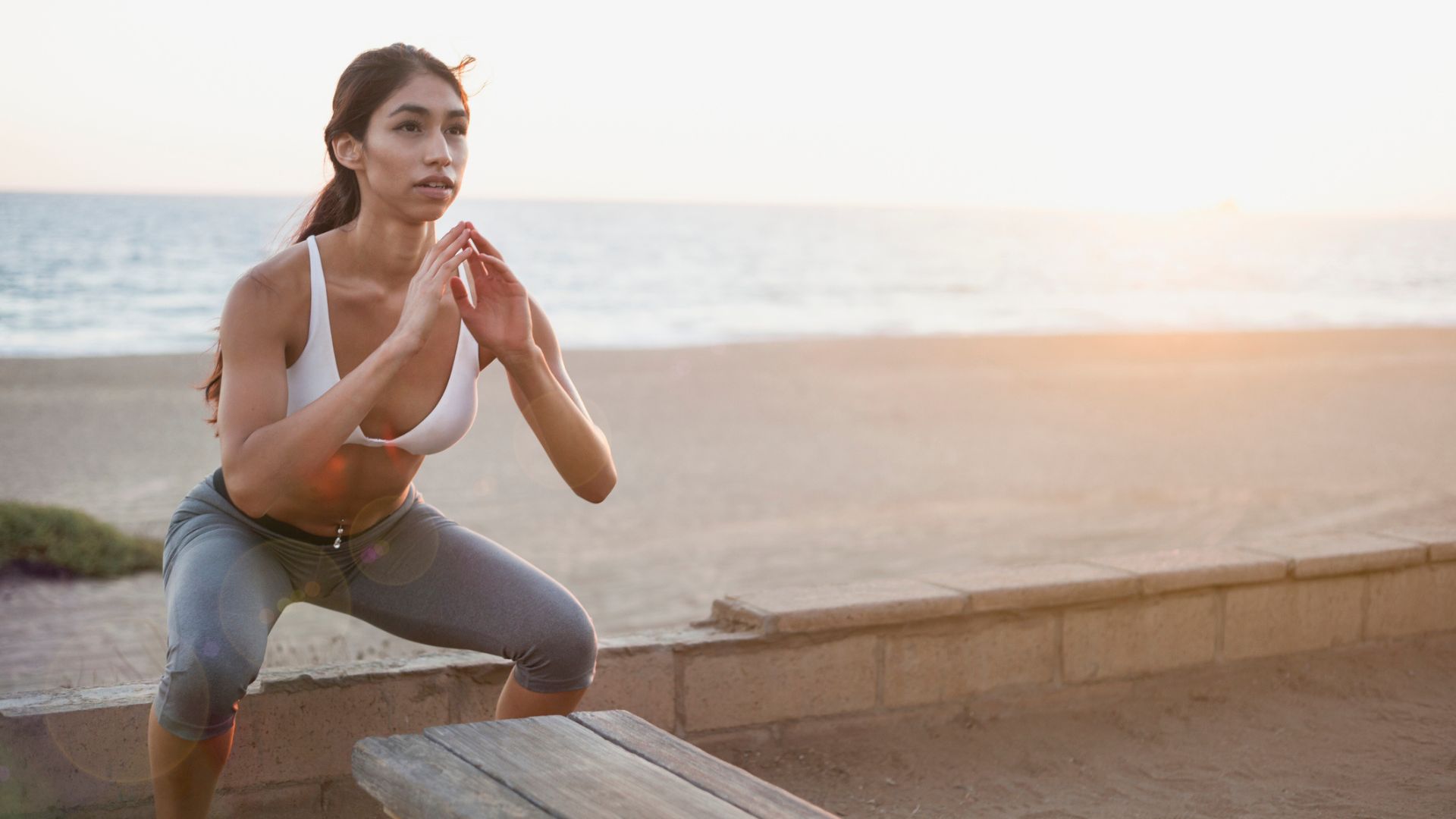
"Squats are a functional exercise, strengthening both the joints and muscles of the lower body while also helping to improve posture and engage the core.
"They are a great movement as they can be made more explosive by adding a jump if you want to get your heart rate up. You can also add weights to work on your strength, or try single-leg squats to challenge your balance further.
"As you are working the largest muscles of the body, squats burn lots of calories while strengthening tendons and bones, which in turn will reduce your risk of injuries."
- Stand upright with your hands clasped in front of your chest.
- Push your hips backwards and bend at the knees to lower your hips towards the ground, keeping your back straight throughout.
- Lower your torso until your hips are slightly lower than your hips.
- Drive through your feet to straighten your legs and return to a standing position.
3. Push-up
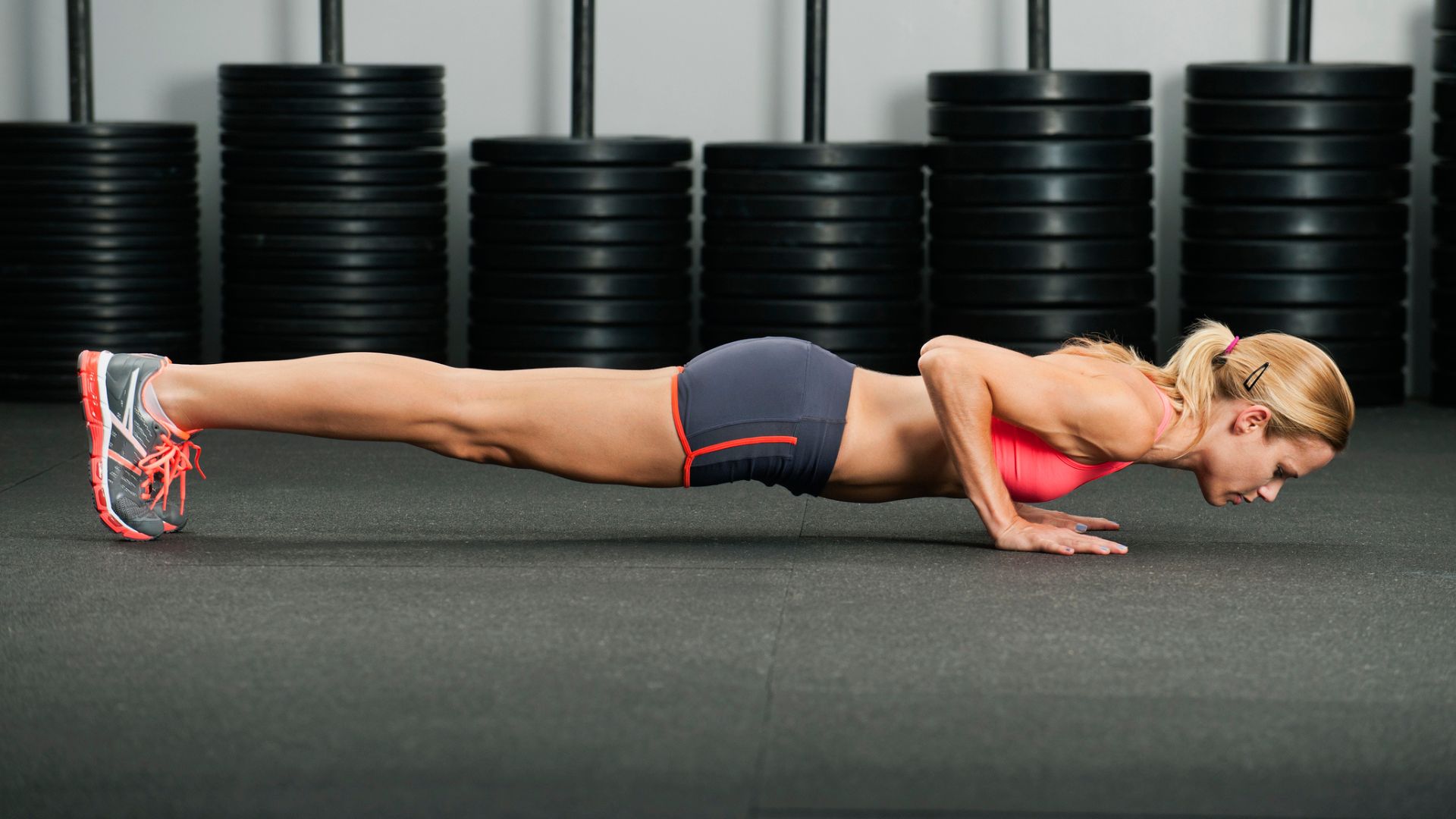
"Push-ups work the shoulders, chest and triceps, making them a great upper-body and core strengthening exercise. Strengthening the upper body has huge benefits on posture and reducing back pain.
"Push-ups can also be modified for a variety of levels. The advanced option is the full push-up, or you can place your knees on the floor if you are just starting out."
- Start in a high plank position, with your hands and toes in contact with the floor, your arms fully extended and your legs and spine forming a straight line.
- Bend your elbows to lower your chest towards the floor, keeping your spine straight and your movements controlled throughout.
- When your chest is nearly touching the ground, push through your hands to straighten your arms and return to the starting position.
4. Burpee
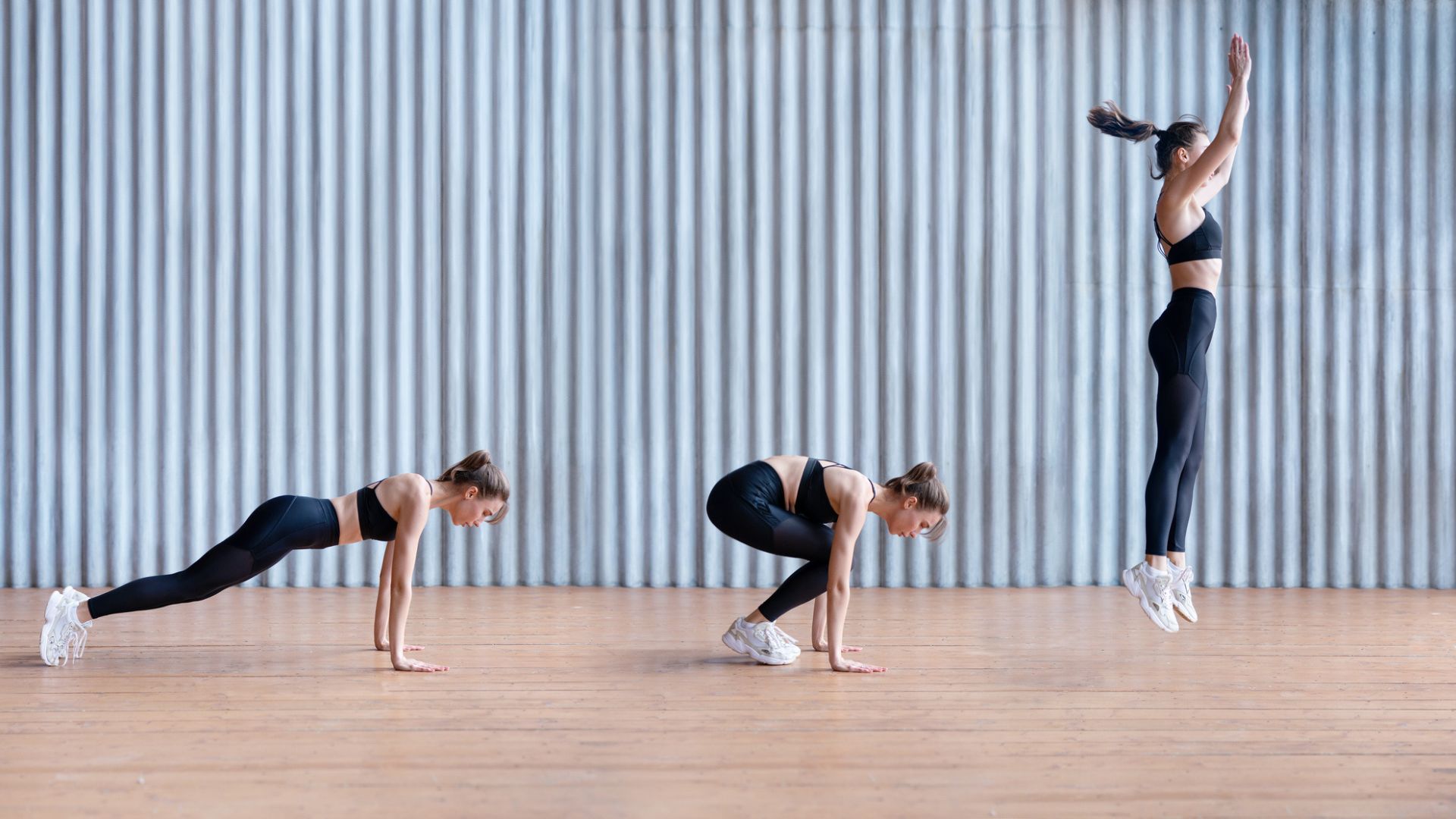
"A wonderful part of any circuit for me, burpees combine strength and cardio in one, working many of the major muscle groups of the body.
"This is a high calorie burner, using body weight resistance to build strength and endurance both in the upper and lower body.
"To modify, make this a low-impact movement with a step back instead of a jump. Or, if you want an extra challenge, try a chest to floor burpee by adding in an extra push up at the bottom of the rep."
Want to learn more about the benefits of the burpee? Find out what happened when our writer tried doing 50 burpees every day for a month.
- Stand upright, then bend down and place your hands on the floor in front of you.
- Jump or step your feet back so you're in a high plank position.
- You have two options next. You can jump your legs forward again and return to the starting position, or if you want an extra challenge, drop your chest to the floor before pushing yourself back up and returning to standing.
- Jump up and clap your hands above your head, then land with a slight bend in your knees. That's one rep.
5. Reverse lunges
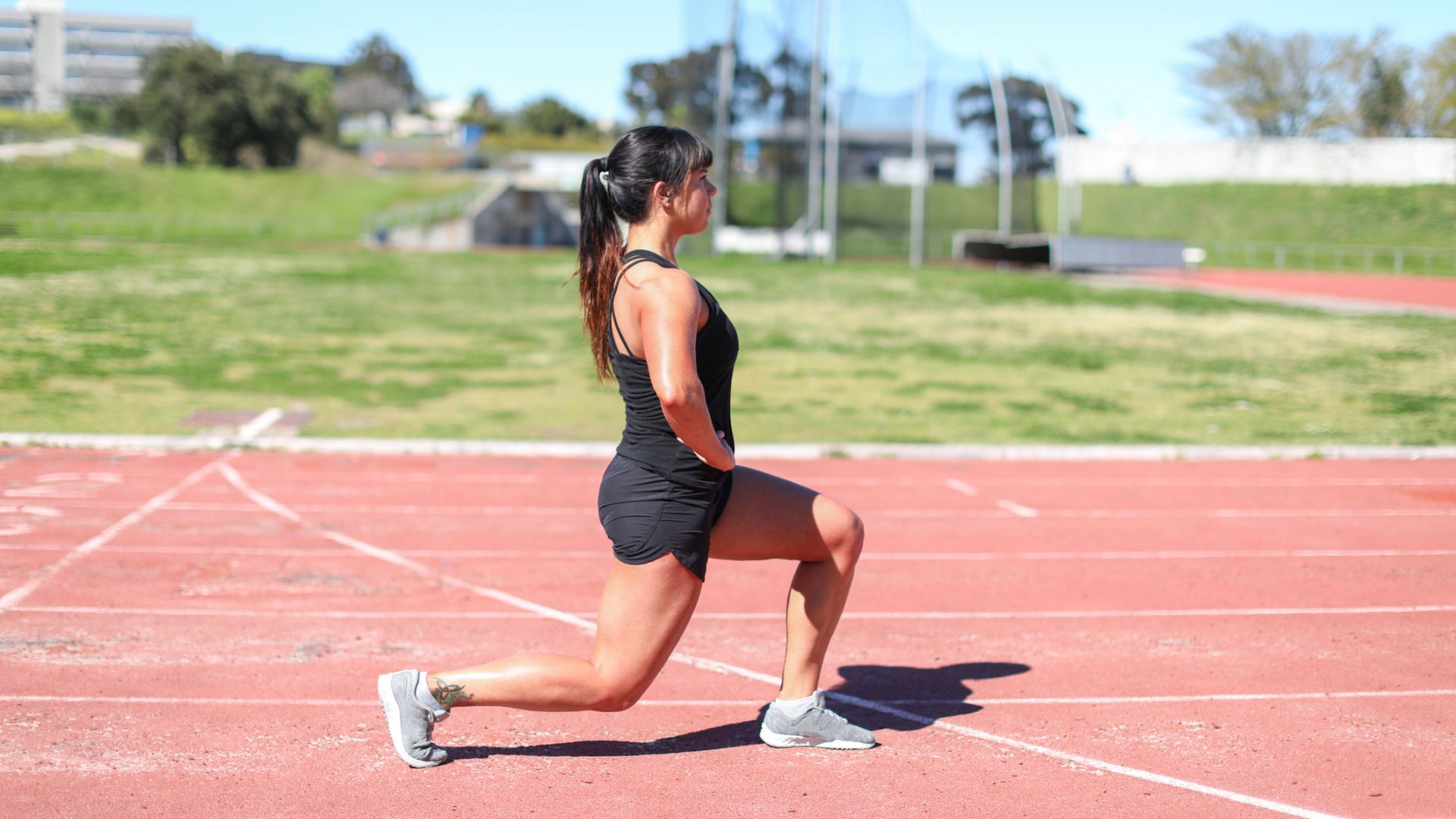
"Another great lower body strengthening exercise, reverse lunges activate the core, glutes and hamstrings. You are working one leg at a time, meaning you are challenging your balance and increasing stability.
"Reverse lunges can be advanced by adding weights or taking them into lunge jumps to make them more cardiovascular focused."
- Stand upright then step one leg behind you.
- Drop the knee of this back leg to the floor. Both your front and back legs should form a 90-degree angle at the knee.
- Drive through your front foot to return to the starting position. That's one rep.
- Repeat, switching the leg you step back with each rep.
6. Mountain climbers
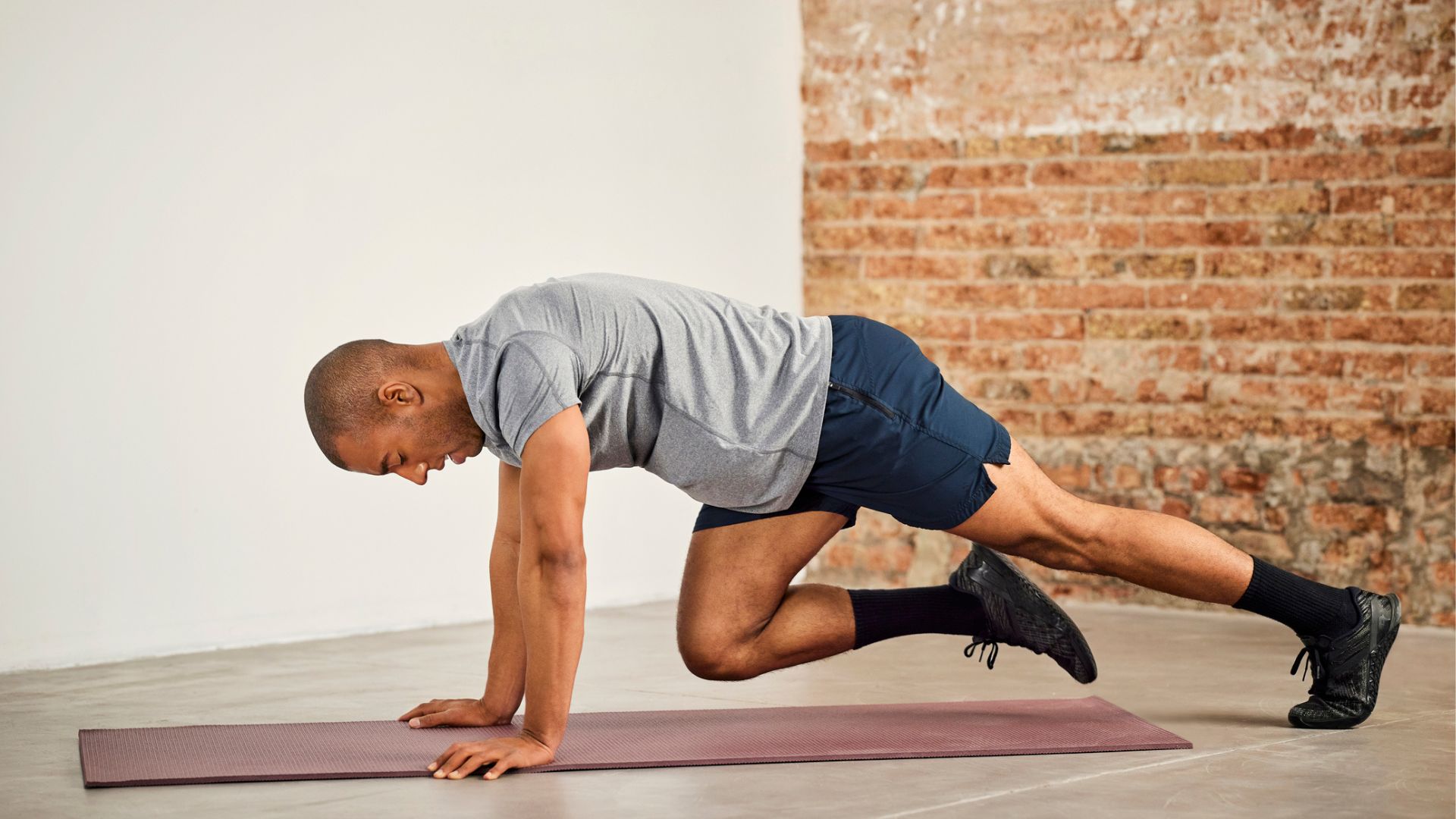
"Bringing up the heart rate once again, mountain climbers provide an opportunity to work aerobically while also strengthening the upper body and core. They are an effective combination of strength and cardio, working the whole body."
- Start in a high plank position.
- Drive your right knee forward towards your right elbow.
- Return to the starting position to complete a rep.
- Repeat on the left side of your body.
- Keep your movements controlled and try to develop a steady rhythm to get the most out of this movement.
7. Bicycle crunches
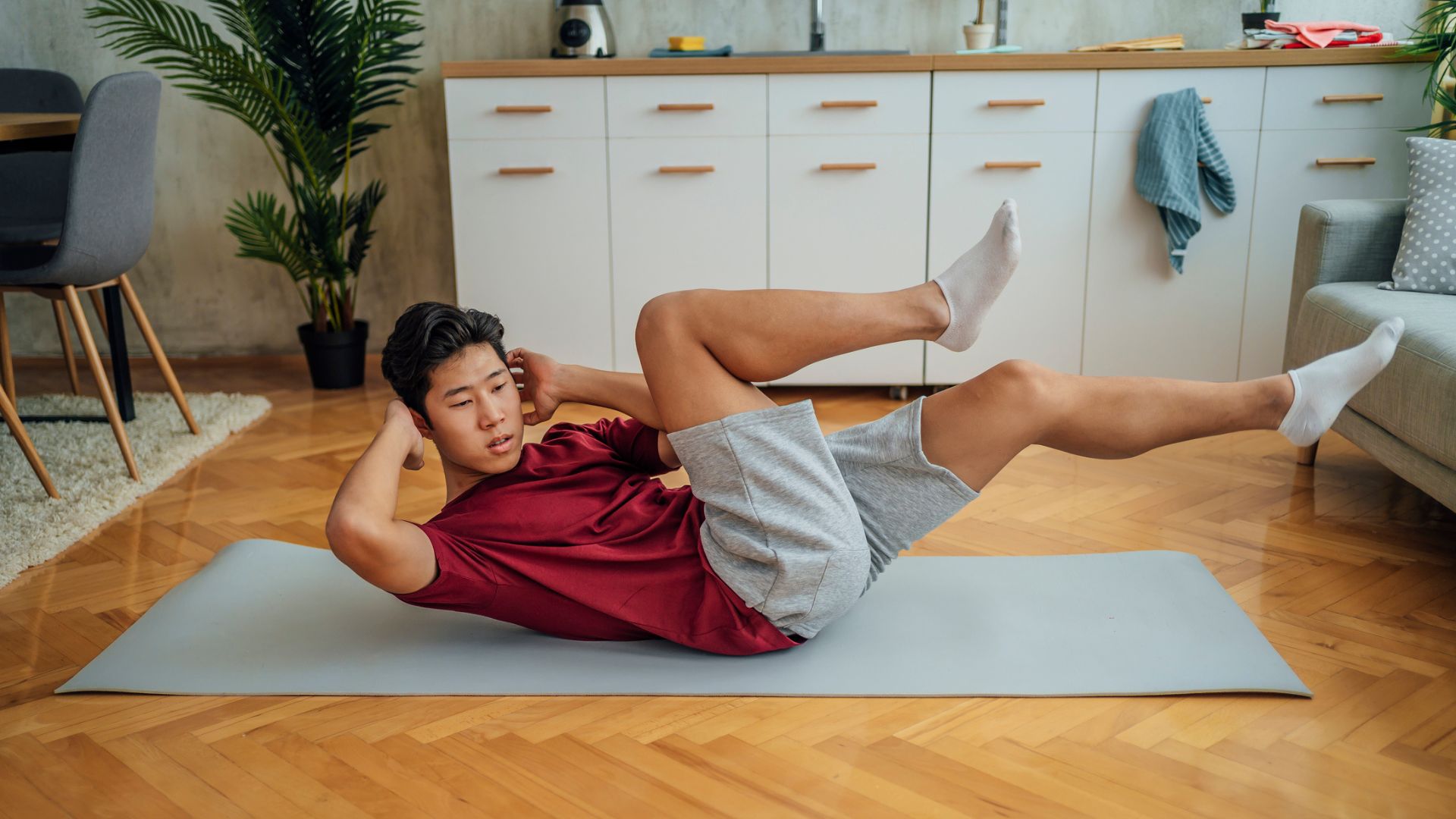
"Bicycle crunches are a great exercise to sculpt the core and waist. I prefer them over a regular crunch as they target not just one but three abdominal muscles: your rectus abdominis (‘six pack’), transverse abdominis (deep core) and your obliques (sides of the core).
"Again, this exercise targets both cardio and strength, and can be slowed down to make it harder [as your abdominal muscles spend more time under tension during each rep].
"When you are short on time, this exercise is a great option to effectively train the abs."
- Lie on your back with your legs extended out in front of you.
- Lift your legs so your feet are slightly off the floor.
- Place your hands on your head so your elbows are flared out to the side.
- Twist to your right and bend your right leg to bring your left elbow and right knee together.
- Return to the starting position to complete a rep, then repeat using the opposite knee and elbow.
- Similar to the mountain climbers, try to develop a steady rhythm and focus on using your core muscles (rather than momentum) to initiate the movement.
8. Commandos
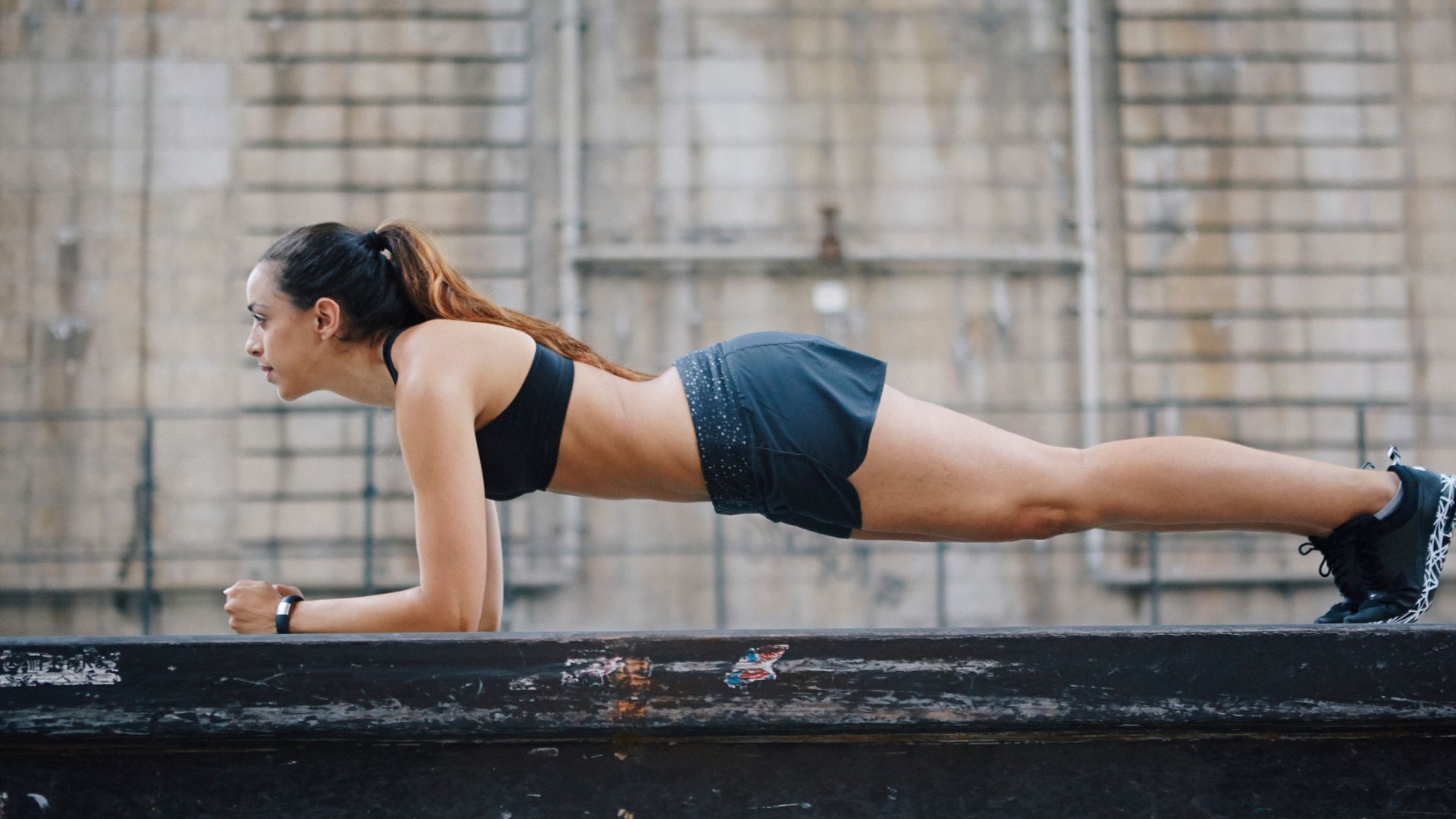
"This is a dynamic version of the plank, adding shoulder activation to the traditional core-strengthening benefits by tasking you with moving from a low elbow plank to a high plank with minimal hip movement.
"This can be made harder by keeping the feet closer together and easier by widening your foot stance for balance." If you're new to strength training, hold a standard plank to increase core and shoulder strength before taking on the commando.
- Start in a high plank position, with your arms straight and supporting your torso.
- Without dropping your knees, drop to a low plank position where your arms are bent and your weight is on your elbows.
- Return to a high plank position to complete a rep.
More bodyweight workouts to try
Bodyweight workouts like this one are a great option for anyone training at home as they allow you to exercise efficiently and effectively with minimal equipment.
If you enjoyed this circuit from Emma Bord and want to try similar sessions, why not try this 20-minute no-equipment workout?
Or, if you want to focus on your core, this six-move abs session will strengthen your midsection without weights.
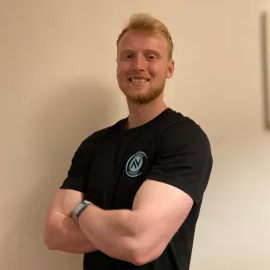
Harry Bullmore is a Fitness Writer for Fit&Well and its sister site Coach, covering accessible home workouts, strength training session, and yoga routines. He joined the team from Hearst, where he reviewed products for Men's Health, Women's Health, and Runner's World. He is passionate about the physical and mental benefits of exercise, and splits his time between weightlifting, CrossFit, and gymnastics, which he does to build strength, boost his wellbeing, and have fun.
Harry is a NCTJ-qualified journalist, and has written for Vice, Learning Disability Today, and The Argus, where he was a crime, politics, and sports reporter for several UK regional and national newspapers.